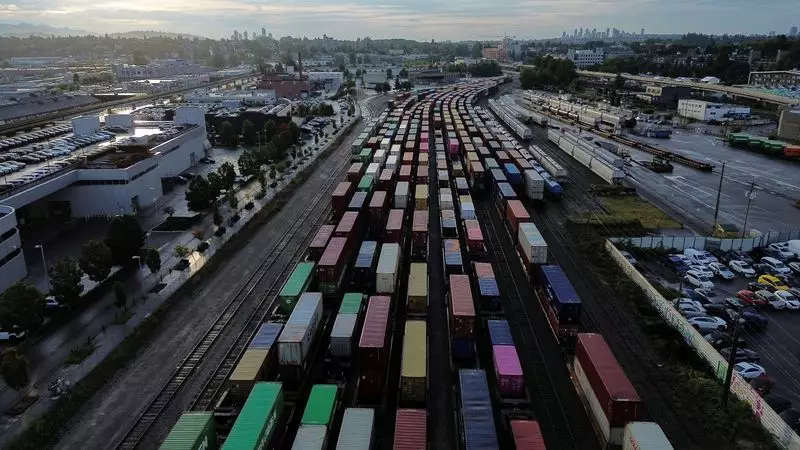The recent rail stoppage in Canada, initiated by the lockout of workers affiliated with the Teamsters union at Canadian National Railway (TSX:CNR) and Canadian Pacific (NYSE:CP) Kansas City, has raised concerns among economists and analysts. The potential economic fallout from an extended stoppage could have far-reaching consequences for Canada’s economy.
According to Pedro Antunes, the chief economist at the Conference Board of Canada, a two-week rail strike could result in a $3 billion loss in nominal GDP in the current year. If the stoppage extends to four weeks, the GDP could decrease by nearly $10 billion in 2024, leading to around 49,000 job losses. This highlights the severe impact that a prolonged disruption in rail freight services could have on the Canadian economy.
Robert Kavcic, senior economist at BMO Capital Markets, pointed out that the simultaneous stoppage of the majority of Canada’s rail freight is “growth-negative and inflation-positive.” He estimates that the stoppage could reduce economic growth by 0.1 percentage points each week, translating into a weekly impact of over $2 billion in nominal GDP terms. The longer the stoppage persists, the greater the economic repercussions could be.
Canada’s economy has been facing challenges, with lackluster growth and rising unemployment rates. The Bank of Canada has already trimmed its policy rate in an attempt to boost the economy. However, the combination of high interest rates, sluggish growth, and economic uncertainties has made the situation more precarious. Against this backdrop, a prolonged rail stoppage could exacerbate the existing economic difficulties.
Derek Holt, head of capital markets economics at Scotiabank, warned that a one- to three-week strike could have a monthly drag on GDP of 0.1%-0.2%. Moreover, the longer the stoppage continues, the more severe the impact would be, potentially leading to an exponential rise in economic losses. As Canada heavily relies on rail freight for transporting goods, any disruption in the transportation network could have cascading effects on various sectors of the economy.
Historical Perspective
Past rail stoppages have typically been short-lived, lasting no more than a week or 10 days. Randall Bartlett, senior director of Canadian economics at Desjardins, emphasized that short-term disruptions have minimal impact on the economy. However, if the current stoppage prolongs beyond a few weeks, it could result in significant economic damage.
The ongoing rail stoppage in Canada poses a significant threat to the country’s economy. The potential losses in terms of GDP, job losses, and inflation could have far-reaching consequences. As economists and analysts caution against the risks of a prolonged disruption in rail freight services, it remains imperative for stakeholders to find a swift resolution to avoid further economic turmoil.

